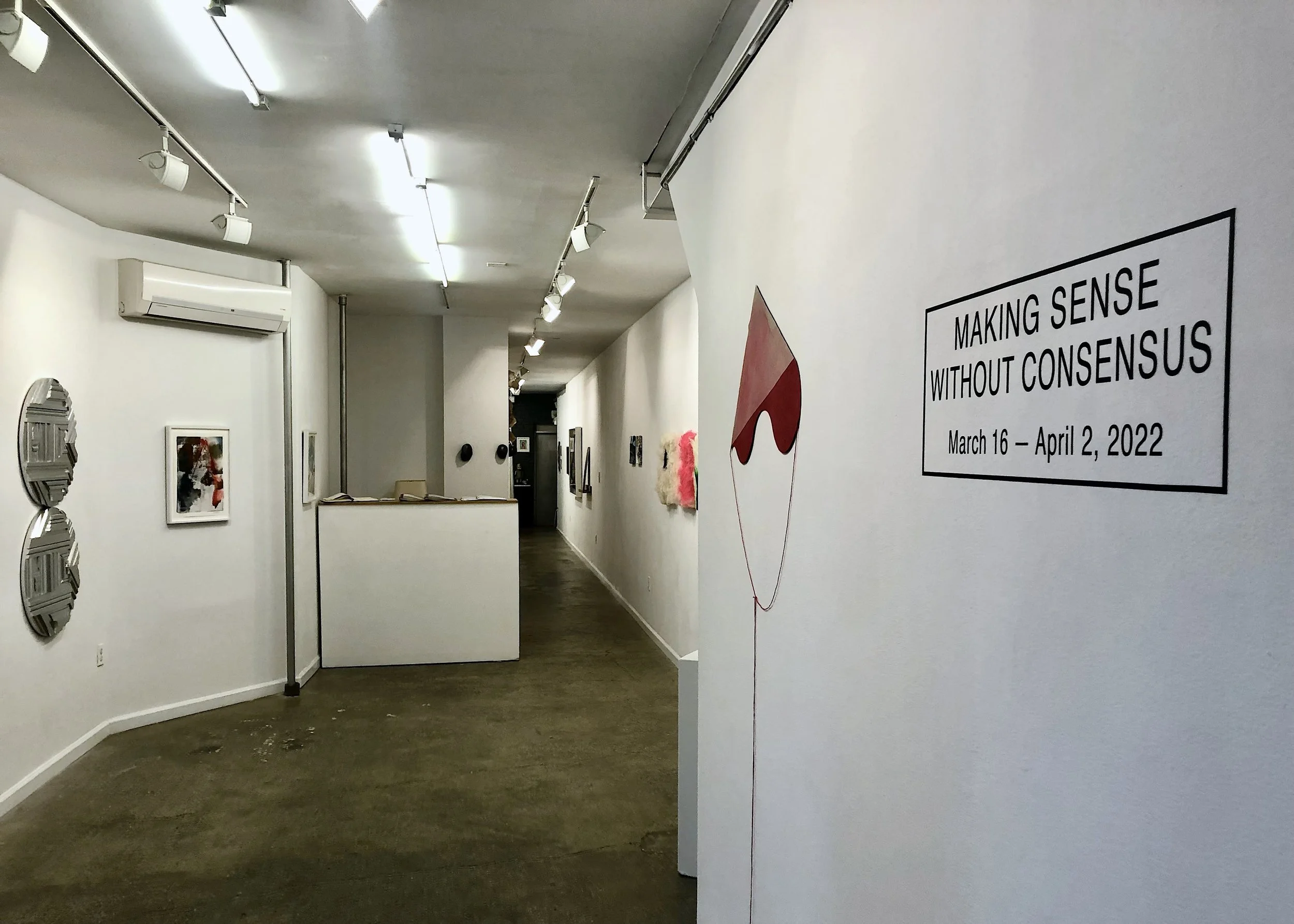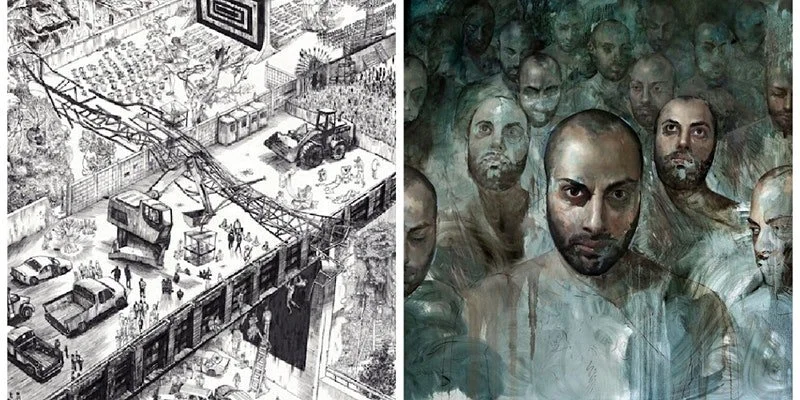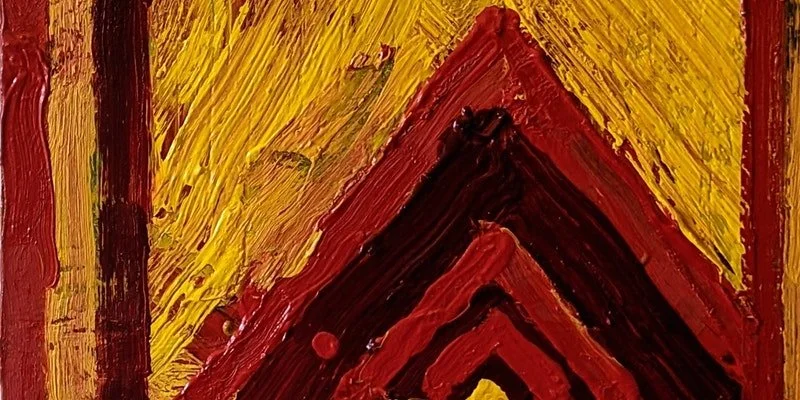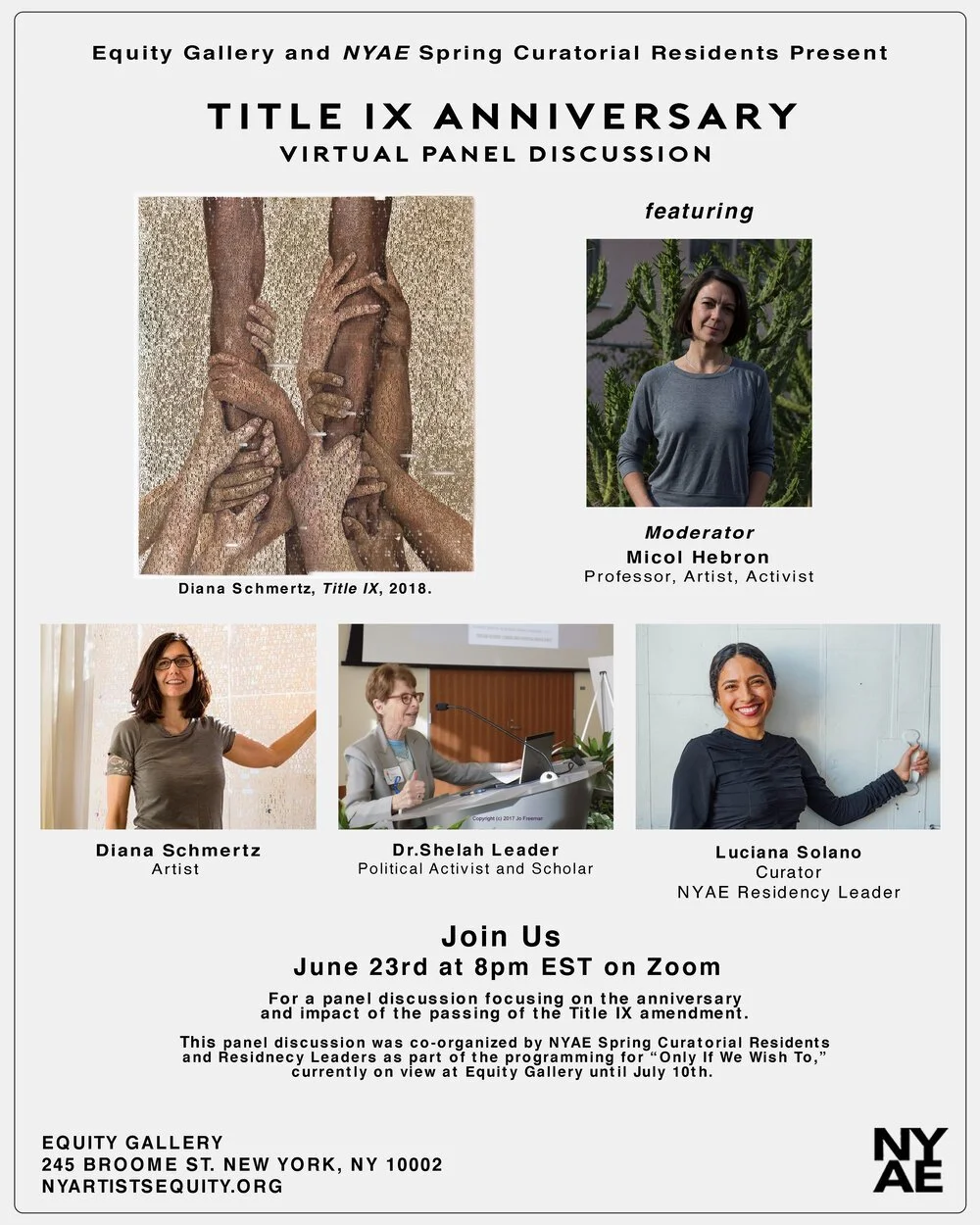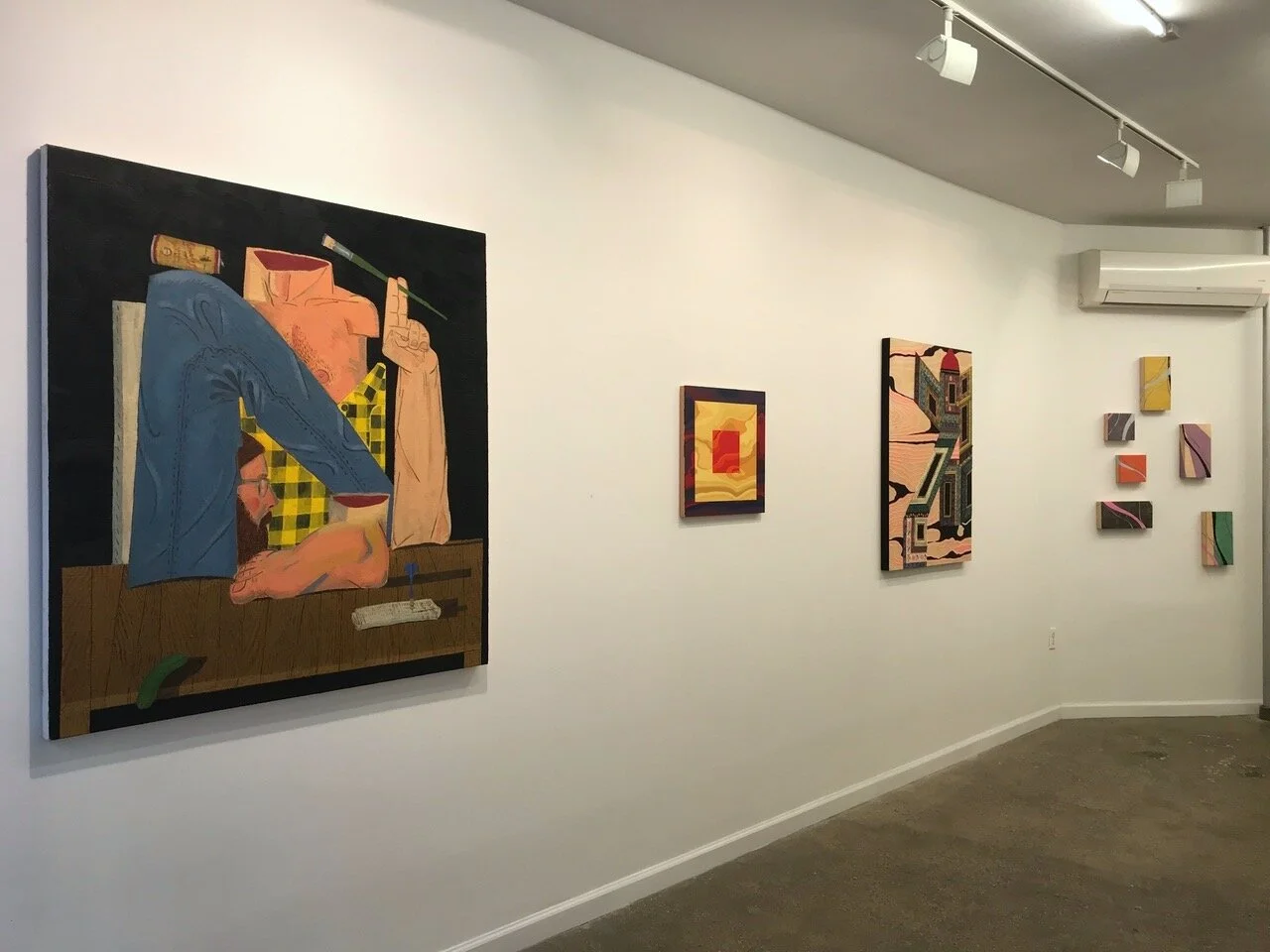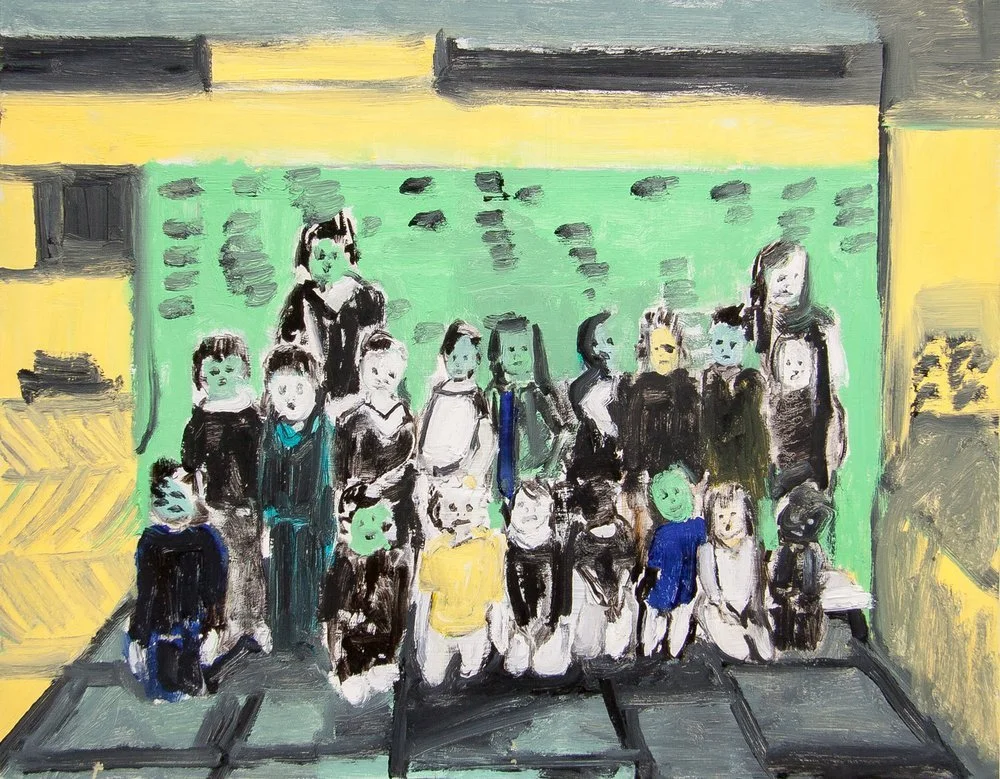About the Series:
During the original run of The White Problem, Equity Gallery hosted a poetry reading curated by the poet Maya Pindyck. Inspired by the online redux of The White Problem, Pindyck has curated a new poetry series titled "3 x 3: Poems to Carry Us Now" to accompany the exhibition.
This curation of poetry, three poems a week for three weeks, amplifies & spreads the voices of Black poets whose words live in our public domain. Collectively, the poems speak both to the problem of Whiteness and to Black joy, resistance, & hope. They are poems to carry us now, into a different world.
I selected one of Carla’s paintings to go with each group of poems. The paintings I chose speak to the ways Whiteness gets reproduced and naturalized at every level of society. The poems offer distinct voices and perspectives on the same problem, and also an antidote. Together, the poems and paintings do (at least) two things: they confront the violent social structures that create and recreate a white supremacist mindset and they jolt us to respond—laying bare their rage, grief, love, and tenderness, touching us to repair this world and to find some solace in their company. The language of Carla’s paintings joined with the languages of these poems sparks a sisterhood in clear-eyed, antiracist work by way of heart and hand. — Maya Pindyck
The series will be disseminated through Equity's online channels on June 27th, July 4th and July 11th.
About the Contributors:
Sonia Sanchez was born Wilsonia Benita Driver on September 9, 1934, in Birmingham, Alabama. After her mother died in childbirth a year later, Sanchez lived with her paternal grandmother and other relatives for several years. In 1943, she moved to Harlem with her sister to live with their father and his third wife.
She earned a BA in political science from Hunter College in 1955. She also did postgraduate work at New York University and studied poetry with Louise Bogan. Sanchez formed a writers' workshop in Greenwich Village, attended by such poets as Amiri Baraka (LeRoi Jones), Haki R. Madhubuti (Don L. Lee), and Larry Neal. Along with Madhubuti, Nikki Giovanni, and Etheridge Knight, she formed the "Broadside Quartet" of young poets, introduced and promoted by Dudley Randall.
Sanchez is the author of more than a dozen books of poetry, including Morning Haiku (Beacon Press, 2010); Shake Loose My Skin: New and Selected Poems (Beacon Press, 1999); Does your house have lions? (Beacon Press, 1995), which was nominated for both the NAACP Image and National Book Critics Circle Award; Homegirls & Handgrenades (White Pine Press, 1984), which won an American Book Award from the Before Columbus Foundation; I've Been a Woman: New and Selected Poems (Third World Press, 1978); A Blues Book for Blue Black Magical Women (Broadside Press, 1973); Love Poems (Third Press, 1973); We a BaddDDD People (Broadside Press, 1970); and Homecoming (Broadside Press, 1969).
Her published plays are Black Cats Back and Uneasy Landings (1995), I'm Black When I'm Singing, I'm Blue When I Ain't (1982), Malcolm Man/Don't Live Here No Mo' (1979), Uh Huh: But How Do It Free Us? (1974), Dirty Hearts '72 (1973), The Bronx Is Next (1970), and Sister Son/ji (1969).
Sanchez's books for children include A Sound Investment and Other Stories (1979); The Adventures of Fat Head, Small Head, and Square Head (1973); and It's a New Day: Poems for Young Brothas and Sistuhs (1971). She has also edited two anthologies: We Be Word Sorcerers: Twenty-five Stories by Black Americans (1973), and Three Hundred Sixty Degrees of Blackness Comin' at You (1971).
Among the many honors she has received are the Robert Creeley Award, the Frost Medal, the Community Service Award from the National Black Caucus of State Legislators, the Lucretia Mott Award, the Outstanding Arts Award from the Pennsylvania Coalition of 100 Black Women, the Peace and Freedom Award from Women International League for Peace and Freedom, the Pennsylvania Governor's Award for Excellence in the Humanities, a National Endowment for the Arts Award, and a Pew Fellowship in the Arts. In 2018, she received the Wallace Stevens Award, given annually to recognize outstanding and proven mastery in the art of poetry. She lives in Philadelphia.
Lucille Clifton was born in Depew, New York, on June 27, 1936. Her first book of poems, Good Times (Random House, 1969), was rated one of the best books of the year by the New York Times.
Clifton remained employed in state and federal government positions until 1971, when she became a writer in residence at Coppin State College in Baltimore, Maryland, where she completed two collections: Good News About the Earth (Random House, 1972) and An Ordinary Woman (Random House, 1974).
She was the author of several other collections of poetry, including Blessing the Boats: New and Selected Poems 1988–2000 (BOA Editions, 2000), which won the National Book Award; Good Woman: Poems and a Memoir 1969-1980 (BOA Editions, 1987), which was nominated for the Pulitzer Prize; and Two-Headed Woman (University of Massachusetts Press, 1980), also a Pulitzer Prize nominee as well as the recipient of the University of Massachusetts Press Juniper Prize.
Clifton was also the author of Generations: A Memoir (Random House, 1976) and more than sixteen books for children, written expressly for an African-American audience.
Her honors include an Emmy Award from the American Academy of Television Arts and Sciences, a Lannan Literary Award, two fellowships from the National Endowment for the Arts, the Shelley Memorial Award, the YM-YWHA Poetry Center Discovery Award, and the 2007 Ruth Lilly Prize.
In 1999, she was elected a Chancellor of the Academy of American Poets. She served as Poet Laureate for the State of Maryland from 1979 to 1985, and Distinguished Professor of Humanities at St. Mary’s College of Maryland.
After a long battle with cancer, Lucille Clifton died on February 13, 2010, at the age of seventy-three.
Amanda Gorman was raised in Los Angeles, California. She is the author of The One for Whom Food Is Not Enough (Penmanship Books, 2015). In 2017 Gorman was named the first-ever National Youth Poet Laureate of the United States. She previously served as the youth poet laureate of Los Angeles, and she is the founder and executive director of One Pen One Page, an organization providing free creative writing programs for underserved youth. Gorman attends Harvard University.
Maya Pindyck examines intimate intersections of memory, place, and culture. A 2019 National Endowment for the Arts Fellow, she is the author of the poetry collections Emoticoncert (Four Way Books) and Friend Among Stones (New Rivers Press, winner of the Many Voices Project Award), and a chapbook, Locket, Master, selected by Paul Muldoon for a Poetry Society of America Chapbook Fellowship. She exhibits her visual work widely and publishes her academic scholarship on schooling in various journals. Pindyck received her BA from Connecticut College in studio art and philosophy; an MFA in poetry at Sarah Lawrence College; an MA in education from Brooklyn College as a New York City Teaching Fellow; and a PhD in English education from Columbia University’s Teachers College. Currently, she is an assistant professor and director of Writing at Moore College of Art & Design in Philadelphia.
